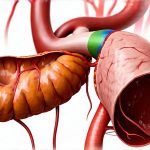Indigestion, also known as dyspepsia, is an incredibly common experience. Most people encounter it at some point – that uncomfortable feeling of fullness, bloating, burning in the stomach, or nausea after eating. Often, it’s a fleeting issue easily addressed with simple lifestyle adjustments like modifying diet or managing stress. However, dismissing persistent or severe indigestion can have consequences extending far beyond temporary discomfort. While many cases resolve on their own, leaving underlying causes unaddressed can lead to chronic digestive problems, nutritional deficiencies, and even more serious health complications over time. Understanding the potential ramifications of untreated indigestion is key to proactive health management and knowing when it’s time to seek medical attention.
This isn’t about catastrophizing every instance of a full stomach; rather, it’s about recognizing that consistent or worsening digestive symptoms are signals your body sends, indicating something may need investigation. Ignoring these signals can allow minor issues to escalate into more significant ones, impacting quality of life and potentially requiring more intensive treatment down the line. The digestive system is remarkably resilient, but even resilience has limits, and prolonged strain without addressing the root cause will inevitably take its toll. This article explores what happens when indigestion is left untreated, offering insight into potential complications and highlighting the importance of seeking appropriate care.
The Escalation of Symptoms: From Discomfort to Chronic Issues
Indigestion rarely stays static; it tends to evolve if not addressed. What begins as occasional bloating or heartburn can progress into a pattern of chronic discomfort that significantly interferes with daily life. This isn’t simply about being uncomfortable after meals – it’s about the potential for persistent pain, altered bowel habits, and increasing anxiety around food. – A key aspect of this escalation is functional dyspepsia, which describes ongoing symptoms without any detectable structural abnormality in the digestive system. This condition can be particularly challenging to manage as identifying the underlying cause proves difficult. – Another common outcome is the development of gastroesophageal reflux disease (GERD), where stomach acid frequently flows back into the esophagus, causing heartburn and potentially damaging the esophageal lining over time. If you experience frequent heartburn, it’s important to understand what happens if you ignore reflux symptoms for too long.
Chronic indigestion can also lead to psychological distress. The constant worry about triggering symptoms, the avoidance of certain foods, and the overall discomfort can contribute to anxiety and even depression. This creates a vicious cycle: stress exacerbates digestive issues, and digestive issues increase stress levels. Furthermore, persistent nausea or abdominal pain can impact sleep quality and energy levels, leading to fatigue and reduced productivity. The cumulative effect of these symptoms can dramatically reduce an individual’s overall well-being. Ignoring indigestion is not just ignoring physical discomfort; it’s potentially overlooking a significant mental health burden.
The body attempts to compensate for ongoing digestive stress in various ways. This might involve changes in eating habits, such as reducing food intake or avoiding certain foods altogether, which can ultimately lead to nutritional deficiencies if the diet becomes too restricted. It can also manifest as altered gut motility – either speeding up or slowing down digestion – resulting in diarrhea, constipation, or unpredictable bowel movements. These adaptations, while initially intended to alleviate symptoms, often create new problems and contribute to a worsening cycle of digestive distress.
The Impact on Nutrient Absorption
One of the most significant consequences of untreated indigestion is impaired nutrient absorption. When the digestive process is disrupted, the body struggles to efficiently break down food and extract essential vitamins, minerals, and other nutrients. This can lead to a range of deficiencies, each with its own set of health implications. – Iron deficiency anemia, for example, can result in fatigue, weakness, and shortness of breath. – Vitamin B12 malabsorption can cause neurological problems and cognitive decline. – Calcium and vitamin D deficiencies can weaken bones and increase the risk of osteoporosis. Understanding how to check if your gut is absorbing nutrients properly can help you address these concerns proactively.
The severity of nutrient absorption issues depends on the underlying cause of the indigestion and the extent to which digestion is compromised. Conditions like celiac disease, while often presenting with more obvious symptoms, can initially manifest as simple indigestion, masking the ongoing damage to the small intestine and hindering nutrient uptake. Similarly, chronic inflammation in the gut – a common feature of many digestive disorders – can interfere with absorption processes. It’s important to remember that even mild untreated indigestion can subtly impact nutritional status over time, potentially leading to long-term health problems. If symptoms return after initial treatment, it’s important to retest if symptoms come back months later.
Addressing nutrient deficiencies requires not only supplementation (under medical guidance) but also resolving the underlying digestive issue. Simply taking vitamins won’t solve the problem if the body continues to struggle with absorption. This underscores the importance of identifying and treating the root cause of indigestion to restore optimal digestive function and ensure adequate nutritional intake.
The Risk of Complications: Beyond Discomfort
Leaving indigestion untreated can pave the way for more serious gastrointestinal complications. While many cases remain benign, a subset can develop into conditions requiring significant medical intervention. – One such complication is peptic ulcer disease, where sores develop in the lining of the stomach or duodenum (the first part of the small intestine). Untreated Helicobacter pylori infection – often associated with indigestion – is a major risk factor for ulcers.
Another potential consequence is Barrett’s esophagus, a condition linked to chronic GERD. In Barrett’s esophagus, the normal lining of the esophagus is replaced by tissue similar to that found in the intestine, increasing the risk of esophageal cancer. While not all cases progress to cancer, it represents a serious long-term complication requiring regular monitoring and potentially aggressive treatment. Beyond these specific conditions, untreated indigestion can contribute to more general inflammation throughout the digestive tract, exacerbating existing inflammatory bowel diseases (IBD) like Crohn’s disease or ulcerative colitis.
Ignoring persistent indigestion isn’t just about enduring discomfort; it’s about increasing the risk of developing serious and potentially life-threatening health problems. Early diagnosis and intervention are crucial for preventing these complications and maintaining long-term digestive health. This often involves seeking medical evaluation to determine the underlying cause of the indigestion and implementing an appropriate treatment plan, which may include medication, lifestyle modifications, or further diagnostic testing. If you suspect issues with your gallbladder, it’s important to know if your gallbladder is causing your symptoms.
When To Seek Medical Attention
Knowing when to seek professional help is paramount. While occasional indigestion can be managed with over-the-counter remedies and lifestyle changes, certain symptoms warrant immediate medical attention. – If your indigestion is severe, persistent (lasting more than two weeks), or accompanied by other concerning symptoms like unintentional weight loss, difficulty swallowing, vomiting blood, or black, tarry stools, it’s essential to consult a doctor promptly. These could be signs of a more serious underlying condition that requires immediate diagnosis and treatment.
-
Additionally, if over-the-counter medications provide no relief, or if your indigestion is significantly impacting your quality of life, seeking medical evaluation is advisable. A healthcare professional can perform diagnostic tests – such as endoscopy, blood tests, or stool tests – to identify the root cause of your symptoms and recommend an appropriate treatment plan. This might involve medication to reduce stomach acid, antibiotics to treat H. pylori infection, or dietary changes to manage underlying food sensitivities. If a colonoscopy reveals something unusual, it’s vital to understand what to do if your colonoscopy finds something unusual.
-
Finally, don’t hesitate to seek medical attention if you suspect a link between your indigestion and other health conditions. For example, if you have diabetes, heart disease, or a family history of gastrointestinal cancer, it’s particularly important to discuss your digestive symptoms with your doctor. Proactive healthcare is the best approach for managing indigestion and preventing potential complications. Remember, early diagnosis and intervention are key to maintaining optimal digestive health and overall well-being. It’s also worthwhile considering what happens if you ignore food sensitivities as a contributing factor.


















